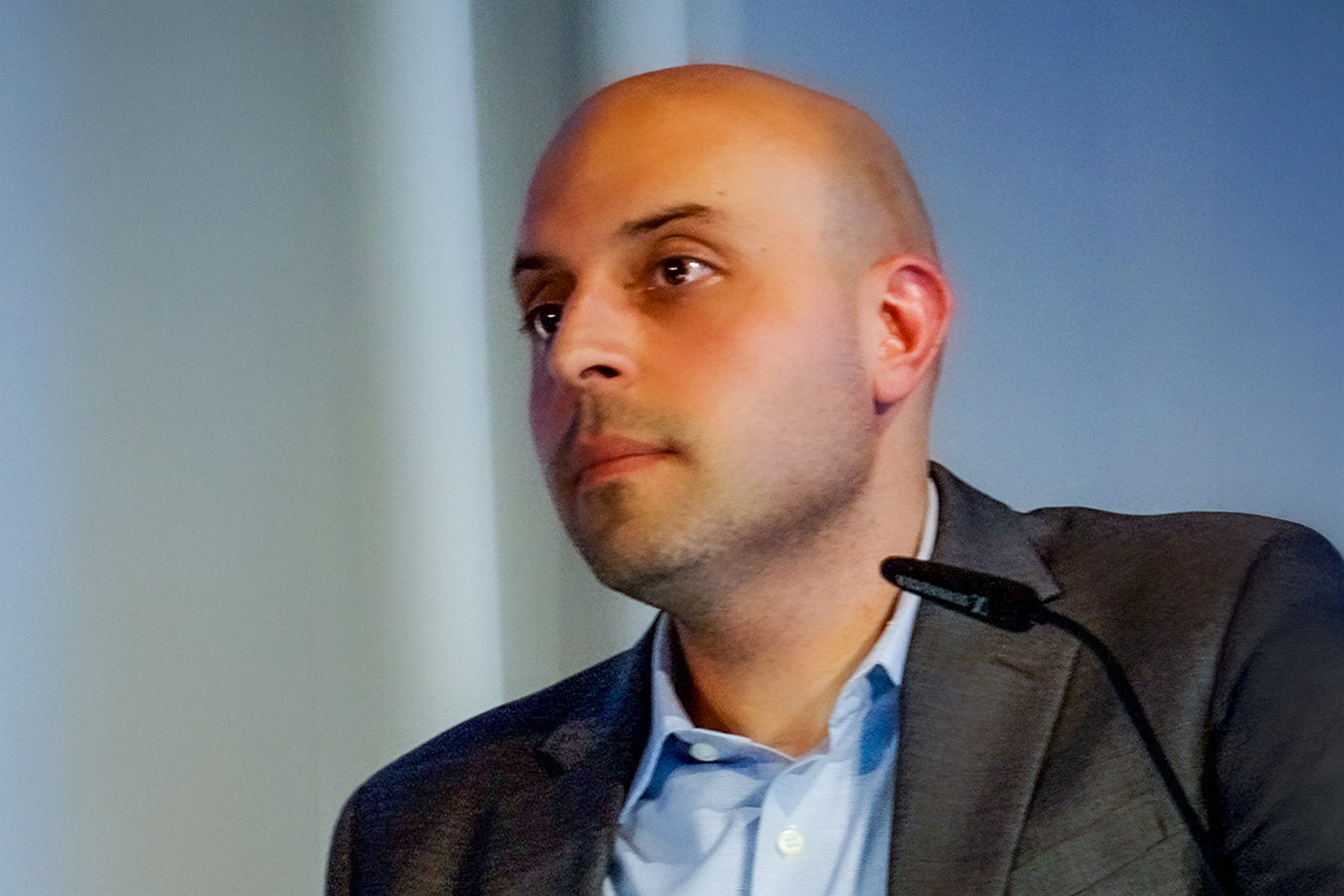Sa’ed Atshan, Randolph Fellow in Peace, Conflict, and the Middle East, Examines ‘Peace at Vassar’
Over this academic year, Vassar College students and staff enjoyed listening to and learning from Professor Sa’ed Atshan, the 2024-2025 Randolph Fellow in Peace, Conflict, and the Middle East. Atshan, Chair of the Department of Peace and Conflict Studies at Swarthmore College in Pennsylvania, visited campus for six three-day residencies—three each in the fall and spring.

Photo courtesy of the subject
During that time, Atshan worked with senior leadership on how issues relating to peace and conflict are dealt with constructively on the Vassar campus and worked with students learning restorative justice practices. He held gatherings with faculty focused on Middle East/North Africa (MENA) and faculty interested in peace and conflict studies. During each visit, he mentored students and presided over a larger all-campus lecture or panel. These included the lecture “On Faith, Peace, and Justice: Reflections from a Queer Palestinian Quaker,” delivered to a standing-room-only crowd, in addition to the panels “Middle Eastern Christians: Indigeneity and Diaspora”; “On Faith, Politics, and Sexuality: The Case of Judaism”; and “On African American Muslim Experiences.” He also participated in a faculty mini-symposium on the discourse about Israel/Palestine at Vassar.
Atshan said his residency at Vassar gave him a richer understanding of the landscape of higher education today. “It has also been inspiring because Vassar is such a first-rate institution led by such capable leadership,” he said. “It has brilliant and deeply committed faculty and remarkable students from all walks of life.”
As part of his residency, Atshan created Peace at Vassar, a project tracing the history of peace and justice efforts at the College, from its founding to the present. The goal was to disseminate this chronology to the broader Vassar community and create a resource for faculty and students interested in the topic.
“I’m in awe of the historical continuity that Vassar has with peace and justice,” said Atshan. “Whether it’s people coming together, writing op-eds, organizing lectures, events, vigils, or fundraisers, Vassar is responsive to what’s happening both locally and globally.”
To complete the project, he hired two students to conduct interviews, research archives, map out the curriculum, and organize this chronology.
Bodie Morein ’28 is a history major, and Julian Balsley ’28 is a history major with a religion correlate. “Their attention to detail, conscientiousness, wisdom, maturity, and insights have been profound,” Atshan said.
Morein said he learned much about Vassar’s activism and fight for justice while working on the project and poring over decades of Vassar publications and outside periodicals. “I didn’t realize how extensive it was until we started doing this research,” he said. “For example, during the Cold War, right after McCarthyism, there were a lot of the same fights for academic freedom as I think we’re facing now. It was very interesting to see how students and faculty were strongly against such requirements, as you had to sign a form saying you were not a Communist to get any kind of financial aid.”
Balsley agreed: “It was interesting how involved Vassar students have been for so long with the outside world, protesting things on the global stage like the Vietnam War, Iraq War, or apartheid in South Africa. What was especially interesting to me was seeing protests that were also about Vassar itself and trying to improve the institution.”
The students’ takeaway from the project was that there were a lot of great examples of students putting themselves on the line. “They were even willing to be arrested for what they think is right,” said Balsley. “Obviously, we’re in a very hard moment in the present day, but things are also great in ways that they haven't ever been.”
Students also learned that change takes time. “When you look at so many instances of protests, you will see that some are incredibly sustained,” said Morein. “The movement against apartheid South Africa was started in the mid-70s and went until the late-80s, while others fell off. The lesson is that it can take a very long time to see the change that you want, but it’s not a reason to stop.”
Atshan has completed his Vassar College residency and says he is grateful to those who were generous in opening their hearts, minds, and homes to him during his visits.
“I’ve gotten to know the Vassar community really well, and it’s been an honor being here,” he said. “I tried to bring a spirit of empathy, reminding myself and others that empathy is not a finite resource. We have the capacity internally within our hearts and souls to be expansive in the generosity of spirit that we extend to others. We want to approach difficult conversations with that generosity of spirit, empathy, intellectual curiosity, assuming the best intentions, and giving others the benefit of the doubt. That enables us to be heard more effectively and to listen more deeply and more effectively. And through that exchange, we can arrive at a better place.”